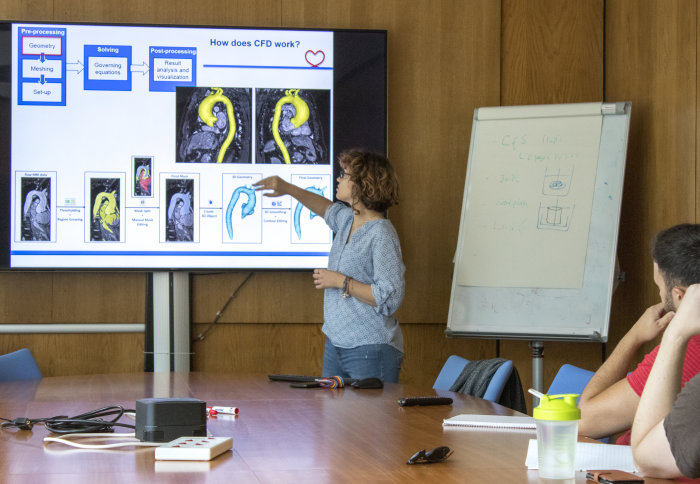Clinicians and engineers launch collaborative learning hub
by Sara West

The Clinician Engineer Hub is an international engineering training programme for medical students launched by academics from three UK universities.
The concept was created by Dr Neel Sharma, a clinician academic in the field of digestive diseases at Queen Elizabeth Hospital Birmingham, to support doctors' understanding of engineering-based solutions that are heavily relied on by the medical profession.
Co-founders Dr Ali Yetisen, Imperial College London, and Dr Mads Bergholt, King’s College London, collaborated with Dr Sharma to launch the Clinician Engineer Hub training programme.
International medical students were invited to spend a week at Queen Elizabeth Hospital Birmingham meeting patients on the ward, in clinic or in the endoscopy department, observing patient treatments and learning how engineering principles could be used to improve current diagnostic and management approaches.
The second week was spent at Imperial College London and King’s College London where students gained theoretical and lab-based exposure to an array of engineering methods such as wearable sensors, tissue engineering and biomedical optics.
Dr Selene Pirola and Rosalia Moreddu of the Department of Chemical Engineering delivered the sessions at Imperial, which explored topics including “Patient-Specific Computational Models of the Cardiovascular System” and “Personalised Medicine: Point-of-Care Diagnostics and Therapeutics”.
Dr Sharma said: “We constantly use a range of engineering tools in medicine to diagnose and treat patients, from pacemakers to ventilators and dialysis machines, but often we’re unaware of how and why they work.
As doctors, we experience first-hand limitations in how patients are diagnosed or managed. This knowledge, however, falls short without adequate engineering know-how.
The Clinician Engineer Hub is an opportunity for future doctors and engineers to work together and better understand how each discipline can influence and inform the other, creating better patient outcomes in the long-term.”
Dr Yetisen commented: “The Clinician Engineer offers a wide range of in-depth practical training to medical students to learn hands-on skills, and will play a pivotal role in the stimulation of the cross-disciplinary entrepreneurial efforts to develop medical devices in the UK and globally.”
Dr Bergholt added: “Clinical medicine as we know it is on the verge of undergoing significant changes. For instance, technologies such as laser diagnostics and artificial intelligence have the potential to revolutionise medicine by reducing subjectivity and improving the diagnostics for our patients. Clinicians with engineering expertise will be at the forefront of medicine in the future.”
The programme, which is free for participants, will run again in December and feature robotics and training in 3D printing.
For more information visit the Clinician Engineer Hub website or follow them on Twitter @clinicengine.
Article text (excluding photos or graphics) © Imperial College London.
Photos and graphics subject to third party copyright used with permission or © Imperial College London.
Reporter
Sara West
Communications Division